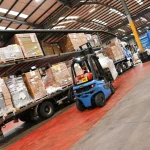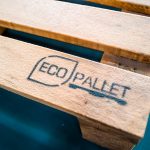
Kenyan Export Rules: Are Your New Wooden Pallets ISPM-15 Compliant?
1. Introduction
If you’re a Kenyan exporter shipping goods overseas, one crucial question to ask is: Are your wooden pallets ISPM-15 compliant? Failure to meet these international standards can result in costly delays, fines, or even the rejection of your shipment.
The International Standards for Phytosanitary Measures No. 15 (ISPM-15) is a global regulation designed to prevent the spread of pests through wooden packaging materials. Many countries, including those in the European Union, the United States, and Asia, enforce this standard strictly.
This article will walk you through everything you need to know about ISPM-15, why compliance matters, and how Kenyan exporters can ensure their wooden pallets meet the requirements.
2. Understanding ISPM-15
What is ISPM-15?
ISPM-15 is an international standard developed by the International Plant Protection Convention (IPPC) to regulate the use of wood in packaging materials, including pallets, crates, and dunnage. Its main goal is to prevent the spread of harmful insects and diseases that could devastate global agriculture and forests.
Which Countries Require ISPM-15 Compliance?
Over 180 countries have adopted ISPM-15 regulations, including:
- European Union (EU) countries
- United States
- China
- Australia
- India
Failure to meet these requirements can result in cargo being held at customs, incurring additional costs or being returned to the sender.
How Does It Affect Wooden Packaging?
All wooden packaging materials used in international shipping must be treated and certified according to ISPM-15 standards. The regulation applies to:
- Wooden pallets
- Crates and boxes
- Dunnage (wood used for securing cargo)
However, processed wood products such as plywood, MDF, and particleboard are usually exempt.
3. ISPM-15 Requirements for Wooden Pallets
Treatment Methods
To comply with ISPM-15, wooden pallets must be treated using one of the following methods:
- Heat Treatment (HT) – The wood is heated to a core temperature of at least 56°C (132.8°F) for a minimum of 30 minutes.
- Methyl Bromide (MB) Fumigation – The wood is exposed to methyl bromide gas for a specified period. However, this method is being phased out due to environmental concerns.
ISPM-15 Marking and Certification
After treatment, pallets must be stamped with the official ISPM-15 mark, which includes:
- The IPPC logo
- A country code (e.g., KE for Kenya)
- A treatment method code (HT or MB)
- A unique identification number of the treatment provider
Exemptions
- Wood less than 6mm thick
- Processed wood materials like plywood or MDF
If your shipment falls under these exemptions, you don’t need ISPM-15 certification.
4. Why ISPM-15 Compliance Matters for Kenyan Exporters
For Kenyan businesses involved in exporting goods, ISPM-15 compliance is not optional—it’s a global trade requirement. Here’s why it matters:
Avoiding Shipment Rejections
Customs authorities in many countries inspect incoming shipments for ISPM-15 compliance. If your pallets are non-compliant:
- Your shipment may be delayed or rejected.
- You could face additional costs for re-exporting or destroying the packaging.
Expanding Trade Opportunities
Kenyan exporters must meet international standards to compete in the global market. ISPM-15 compliance ensures seamless trade with partners in the EU, U.S., and beyond.
Protecting Ecosystems
Non-treated wooden pallets can carry pests that devastate forests and crops. Compliance with ISPM-15 helps prevent ecological damage and maintains global biodiversity.
5. Kenyan Regulations on Wooden Packaging for Export
Role of KEPHIS
The Kenya Plant Health Inspectorate Service (KEPHIS) oversees the regulation of wooden packaging materials. KEPHIS:
- Issues ISPM-15 certification for Kenyan exporters.
- Conducts inspections to ensure compliance.
- Works with treatment providers to enforce standards.
Certification and Inspection Process
To get ISPM-15 certification in Kenya:
- Use a KEPHIS-approved treatment provider for heat treatment or fumigation.
- Ensure the pallets are properly marked with the ISPM-15 stamp.
- Maintain records of treatment and certification for customs clearance.
Penalties for Non-Compliance
Kenyan exporters who fail to comply with ISPM-15 regulations may face:
- Shipment delays or rejections
- Additional costs for repackaging or treatment
- Loss of business opportunities in foreign markets
6. How to Ensure Your Wooden Pallets Are ISPM-15 Compliant
To avoid problems, follow these steps:
- Source pallets from certified suppliers who provide ISPM-15 treated wood.
- Verify the ISPM-15 marking on all wooden pallets before shipping.
- Keep records of compliance documents for customs and buyers.
Common Mistakes to Avoid
- Using untreated or incorrectly marked pallets.
- Assuming all wooden packaging is automatically compliant.
- Not checking supplier credentials.
7. Alternative Packaging Solutions
While wooden pallets are common, exporters should also consider alternative packaging options that eliminate the need for ISPM-15 compliance.
Plastic Pallets
Plastic pallets are ISPM-15 exempt since they are not made of raw wood. Advantages include:
- Durability – They last longer than wooden pallets.
- Pest-Free – No risk of insect infestation.
- Moisture Resistance – Ideal for humid environments.
- Lower Long-Term Costs – Although the initial cost is higher, they require less maintenance and replacement.
Composite and Metal Pallets
- Composite pallets (pressed wood, plywood, or fiberboard) are ISPM-15 exempt. They offer a lighter and often cheaper alternative.
- Metal pallets are highly durable and mostly used in specialized industries like automotive and pharmaceuticals.
Cost and Sustainability Considerations
- Plastic pallets are more expensive but reusable.
- Metal pallets have a long lifespan but are costly and heavy.
- Wooden pallets are cheap upfront but require treatment and maintenance.
For Kenyan exporters seeking long-term cost savings, investing in plastic or composite pallets might be a good option.
8. Challenges and Common Issues in Compliance
Even with clear regulations, Kenyan exporters face challenges in ensuring ISPM-15 compliance.
1. Cost Implications for Small Businesses
- Heat treatment and fumigation services add extra costs for exporters.
- Small businesses struggle to afford ISPM-15 certified pallets.
2. Availability of Compliant Pallets
- Some local pallet manufacturers do not follow ISPM-15 regulations.
- Limited certified treatment facilities can cause delays.
3. Risk of Fraudulent ISPM-15 Markings
- Some uncertified suppliers use fake ISPM-15 stamps, leading to rejected shipments.
- Always verify pallet sources through KEPHIS-approved providers.
4. Lack of Awareness
- Many exporters are unaware of ISPM-15 rules until their shipments get delayed.
- Proper training and education are crucial for compliance.
9. Steps to Get Your Wooden Pallets Certified
If you choose to use wooden pallets, follow these steps to ensure compliance:
Step 1: Find an Accredited Treatment Provider
- Work with a KEPHIS-approved heat treatment or fumigation service.
- Ensure the provider uses approved ISPM-15 methods (HT or MB).
Step 2: Inspect and Mark the Pallets
- Verify that the ISPM-15 stamp is correctly applied.
- Check that the wood is free from visible pests and mold.
Step 3: Maintain Compliance Records
- Keep records of treatment certificates and invoices.
- This documentation helps avoid customs issues.
Step 4: Double-Check Before Shipment
- Inspect all pallets before loading cargo.
- Avoid mixing treated and untreated wooden pallets.
By following these steps, Kenyan exporters can avoid delays and extra costs caused by non-compliance.
10. Future Trends in Wooden Pallet Regulations
As global trade evolves, ISPM-15 regulations continue to change.
1. Stricter Enforcement Worldwide
- Countries are becoming more strict about ISPM-15 compliance.
- Penalties for non-compliance are increasing.
2. Phasing Out Methyl Bromide
- Many countries are banning methyl bromide due to environmental risks.
- Heat treatment is becoming the preferred method.
3. Sustainable Packaging Trends
- More exporters are switching to plastic, composite, or reusable pallets.
- Governments worldwide are encouraging eco-friendly alternatives.
4. Digital Tracking for Compliance
- Future shipments may require scannable ISPM-15 compliance codes.
- Technology will help reduce fraudulent ISPM-15 markings.
Kenyan exporters must stay updated on these trends to maintain a competitive edge in international trade.
11. Conclusion
Ensuring your wooden pallets are ISPM-15 compliant is not just about following rules—it’s about protecting your business, avoiding delays, and keeping trade flowing smoothly.
Kenyan exporters must:
✔ Use certified ISPM-15 pallets or alternative packaging.
✔ Verify treatment and markings before shipping.
✔ Work with approved treatment providers to avoid penalties.
✔ Stay informed about changing global regulations.
By prioritizing compliance, businesses can expand into global markets hassle-free while avoiding unnecessary costs and shipment delays.
12. FAQs
1. What happens if my wooden pallets are not ISPM-15 compliant?
Your shipment may be held at customs, fined, or even sent back to Kenya, resulting in extra costs.
2. How can I verify if a pallet is properly treated?
Check for the ISPM-15 stamp, which includes:
- The IPPC logo
- A country code (KE for Kenya)
- The treatment method code (HT or MB)
3. Are used wooden pallets subject to ISPM-15 regulations?
Yes, unless they have been previously treated and marked as compliant. If not, they must be re-treated before export.
4. Do all countries require ISPM-15 compliance?
Most major trading nations (EU, USA, China, Australia, etc.) enforce ISPM-15. However, some regions may have different standards.
5. What is the cost of getting wooden pallets treated and certified?
Costs vary depending on the service provider, treatment method, and quantity of pallets. On average, heat treatment costs less than fumigation in the long run.





Add a comment